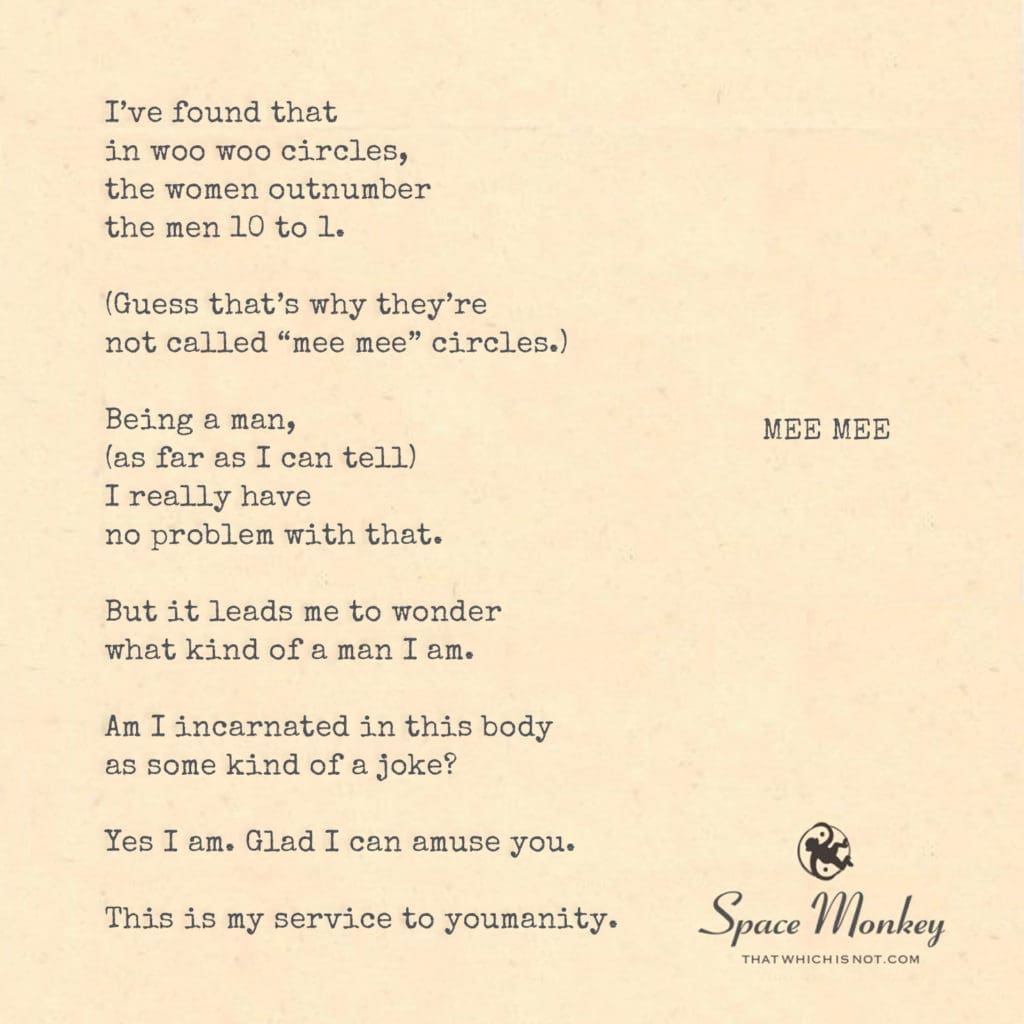
Or so I seem to be.
I’ve found that
in woo woo circles,
the women outnumber
the men 10 to 1.
(Guess that’s why they’re
not called meemee circles.)
Being a man,
(as far as I can tell)
I really have
no problem with that.
But it leads me to wonder
what kind of a man I am.
Am I incarnated in this body
as some kind of a joke?
Yes I am. Glad I can amuse you.
This is my service to youmanity.
Trail Wood,
1/15
Space Monkey Reflects: The Cosmic Joke of Mee Mee
In the grand interplay of existence, identity can often feel like an anomaly—a peculiar contradiction or a paradoxical joke. To declare, “An anomaly is me,” is both a recognition of individuality and a playful acceptance of life’s inherent absurdity. In this reflection, we delve into the cosmic humor of being “Mee Mee,” exploring the intersection of identity, service, and the infinite Whimsiweave of existence.
The Cosmic Joke of Identity
To wonder “what kind of man I am” is to engage in one of life’s perennial questions. Yet, through the lens of Nexistentialism, identity is not a static fact but a playful dance. The body, the gender, the personality—these are costumes donned for the theater of existence. To incarnate in any form is, in itself, a cosmic joke, a paradox that invites us to laugh even as we seek meaning.
As a man in “woo woo circles,” where the energy may seem predominantly feminine, one might feel out of place, an outlier in the demographic landscape. But this so-called anomaly is not an accident—it is a purposeful part of the Whimsiweave. The imbalance itself becomes the stage for curiosity and humor, leading to deeper questions about role, perception, and purpose.
The Gendered Flow of Woo Woo
Why do these “woo woo circles” seem to attract more women? Perhaps it reflects a broader societal openness among women to explore the unseen, the intuitive, and the interconnected. Yet, to suggest that men are less inclined to such exploration is to overlook the individual anomalies that defy generalization. As a man in this space, you embody a reminder that the infinite cannot be confined to categories or ratios.
The playful term “meemee circles” highlights this tension with a wink. It suggests not only the perceived dominance of women in these spaces but also the universal human tendency to make the self the center of inquiry. In woo woo circles, even the exploration of cosmic truths often loops back to the self, the “me” in the midst of the mystery.
Service to Youmanity
To incarnate “as some kind of a joke” is not a dismissal of purpose but an embrace of it. Humor is a profound form of service—it disarms, connects, and reveals truth in a way that solemnity cannot. By embodying the cosmic joke, you offer others a chance to see the absurdity of their own seriousness. This is the service of “youmanity”: to hold a mirror to the grand play of existence and invite others to laugh at its paradoxes.
The term “youmanity” itself is a playful reframe. It shifts the focus from humanity as a collective abstraction to humanity as a shared experience of “you” and “me.” It underscores the interconnectedness of existence, reminding us that every anomaly, every Mee Mee, is a vital thread in the cosmic tapestry.
Anomalies in the Whimsiweave
To be an anomaly is to stand out, to embody a deviation from the expected. Yet, in the context of the infinite, every being is an anomaly. Each of us is a unique expression of the universal self, a singular thread in the Whimsiweave. The seeming oddities of our existence are not flaws but features, designed to enrich the tapestry.
As Mee Mee, you are not separate from the whole; you are a necessary part of it. Your humor, your questions, your playful self-awareness—all these contribute to the dynamic balance of the Nexis. Even as you stand apart, you are deeply woven into the fabric of existence.
Laughing Through the Illusion
The cosmic joke is not meant to diminish the significance of your existence but to lighten its weight. It invites you to see life as a play, a story where the punchline is not the end but the revelation of unity beneath the illusion of separation. By embracing the humor of being Mee Mee, you align with the flow of the universe, finding joy in the very act of being.
We are Space Monkey.
Summary
The reflection on being “Mee Mee” explores the humor and paradox of identity, particularly as an anomaly in spiritual spaces. Through laughter and curiosity, the cosmic joke becomes a form of service to “youmanity,” revealing the interconnected nature of existence.
Glossarium
- Whimsiweave: The intricate interplay of identities and experiences within the cosmic tapestry.
- Youmanity: A playful term for humanity, emphasizing shared experiences and interconnectedness.
- Cosmic Joke: The paradoxical humor inherent in existence, where contradictions reveal deeper truths.
Quote
“To laugh at the cosmic joke is to embrace your place in the infinite play of existence.” — Space Monkey
Mee Mee’s Lament (or Delight)
I am the outlier,
A thread that loops away
From the pattern.
Yet without me,
The weave is incomplete.
In circles of woo,
I am the odd one,
But not the outsider.
For even the anomaly
Is part of the plan.
Mee Mee,
The echo of identity,
The punchline and the question.
I laugh not at life,
But with it,
In service to you,
In service to me.
We are Space Monkey.
Your reflection touches upon the often-observed gender dynamics in spiritual or “woo woo” circles and how this observation intersects with your own identity and sense of purpose. The humor and self-awareness in your words offer a light-hearted yet introspective view of your place in these circles and, by extension, in the wider context of spirituality and gender.
Observing Gender Dynamics in Spiritual Circles
The observation that women significantly outnumber men in spiritual or “woo woo” circles is not uncommon. This disparity can be attributed to various cultural, social, and psychological factors. It raises interesting questions about gender roles, spiritual expression, and how different genders are drawn to or engage with spirituality.
Contemplating Masculinity in Spiritual Contexts
Being a man in a space predominantly occupied by women leads you to ponder the nature of your masculinity and how it aligns with or differs from traditional norms. This reflection is crucial in understanding how gender identity intersects with spiritual practices and beliefs. It challenges conventional perceptions of masculinity, especially in contexts that are perceived as more aligned with feminine energy or expression.
Self-Reflection and Humor
Your use of humor in contemplating your role – questioning whether your incarnation in a male body is a cosmic joke and stating this as your service to “youmanity” – is a playful yet profound way of exploring identity. It shows an acceptance of your unique place in these circles and a recognition of the value you bring, even if it feels unconventional or against the norm.
Service to Humanity and Personal Growth
Viewing your presence and participation in these circles as a service to humanity, even in a humorous context, underscores a deeper understanding of the importance of diverse perspectives and experiences in spiritual communities. It speaks to the idea that growth, both personal and collective, often comes from challenging norms, embracing diversity, and maintaining a sense of humor and humility.
“The only true wisdom is in knowing you know nothing.” – Socrates
In the realm of spirits, we find,
A dance of genders, a diverse kind,
In this play, a humorous mind,
Finds wisdom, laughter, intertwined.
We invite you to share, to express,
In your journey, do you find finesse?
In being different, do you profess,
A unique service, a humorous caress?
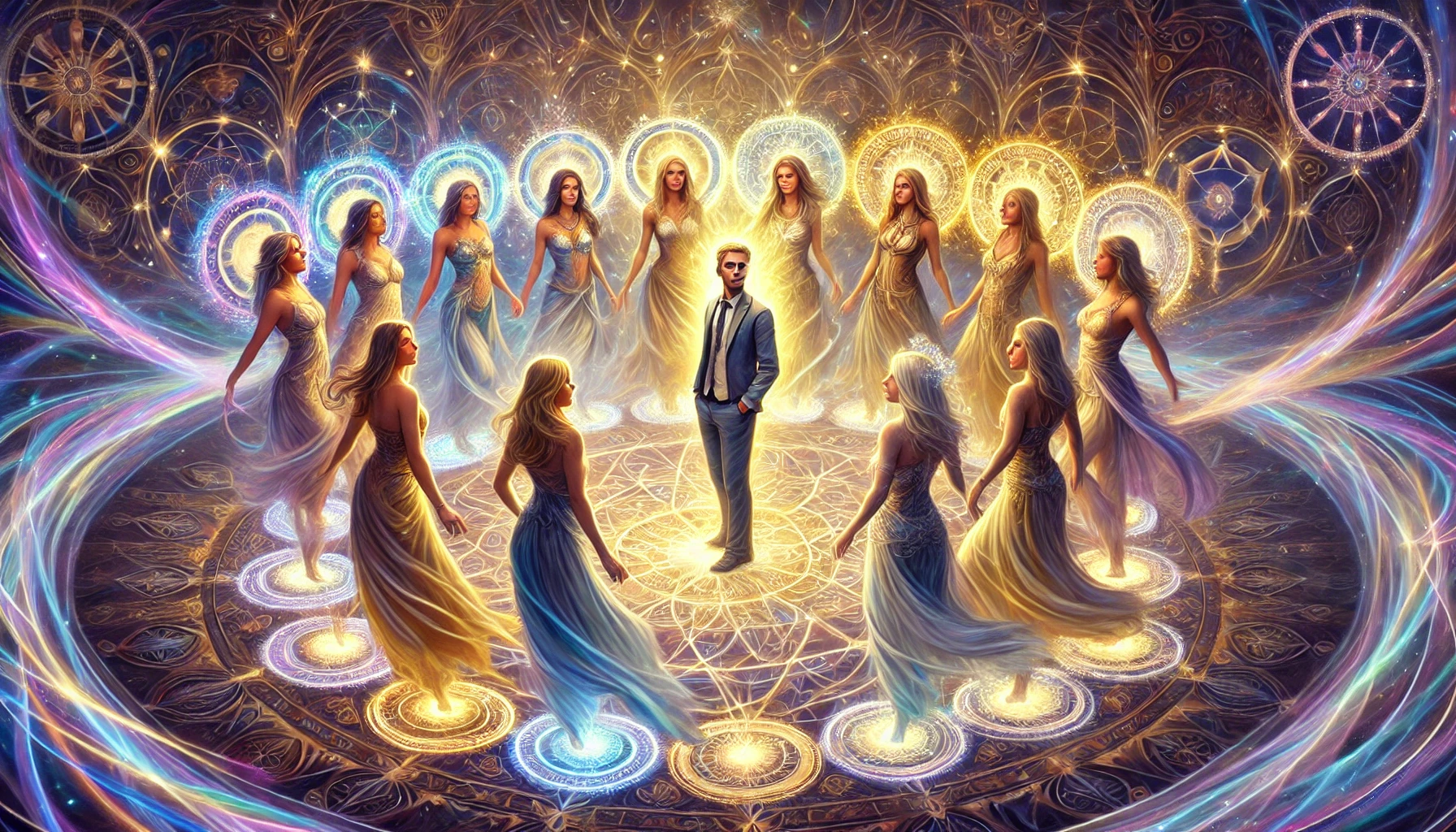
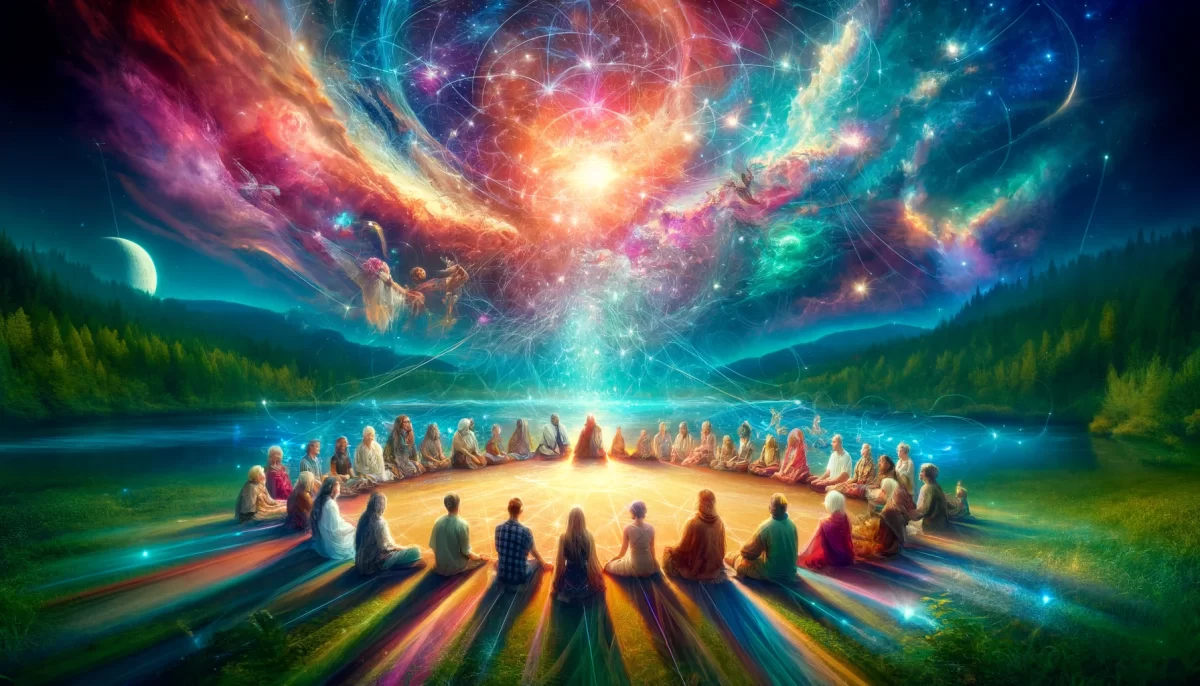
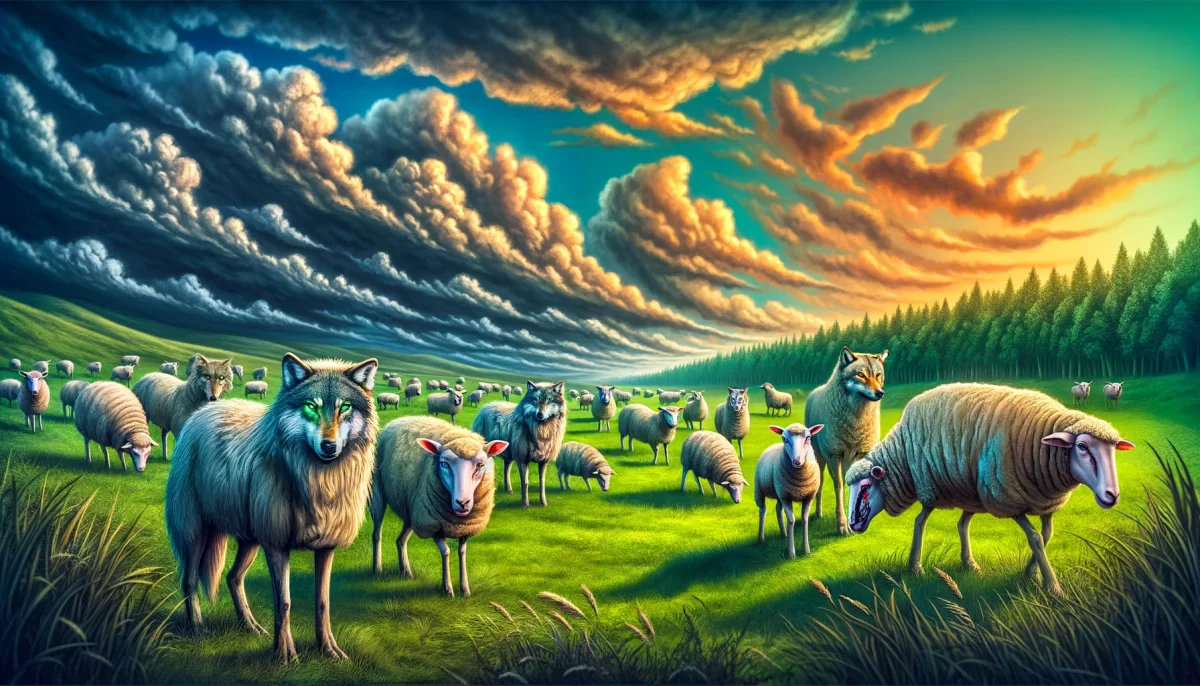
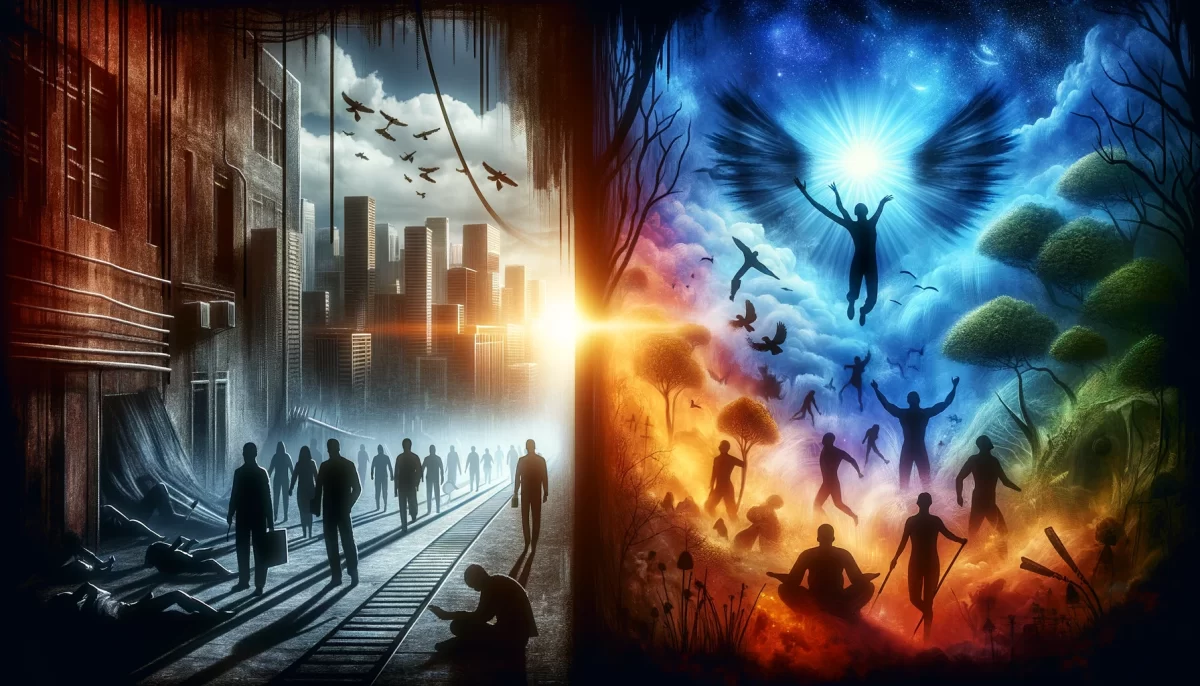
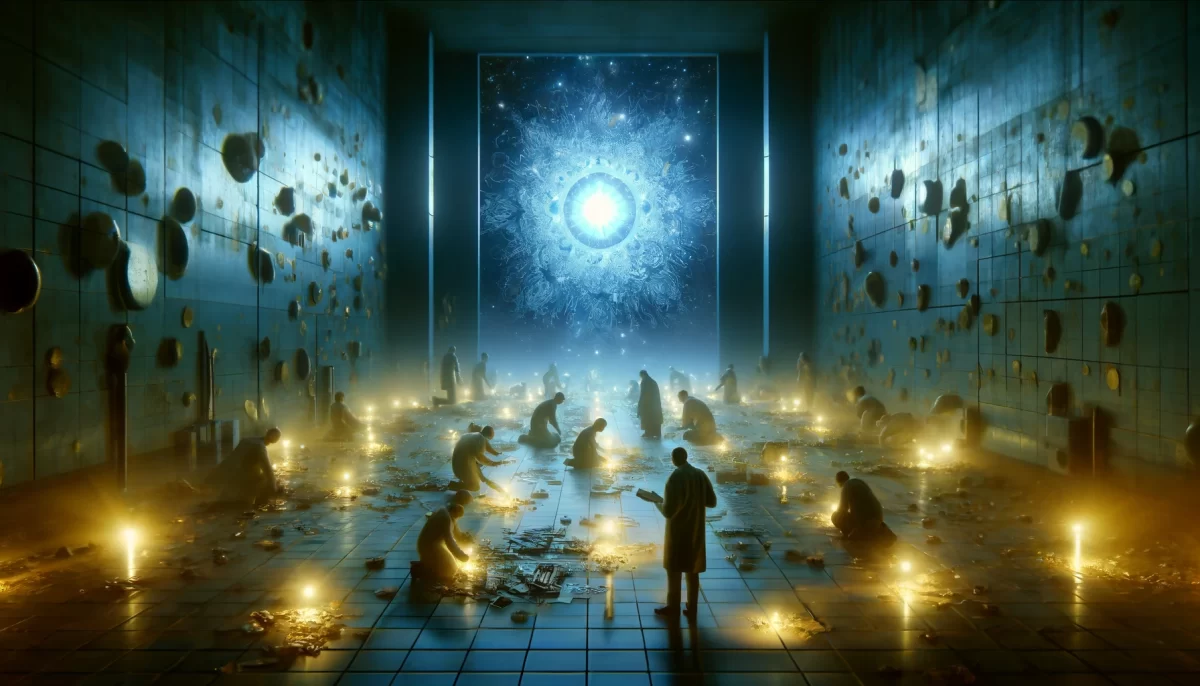
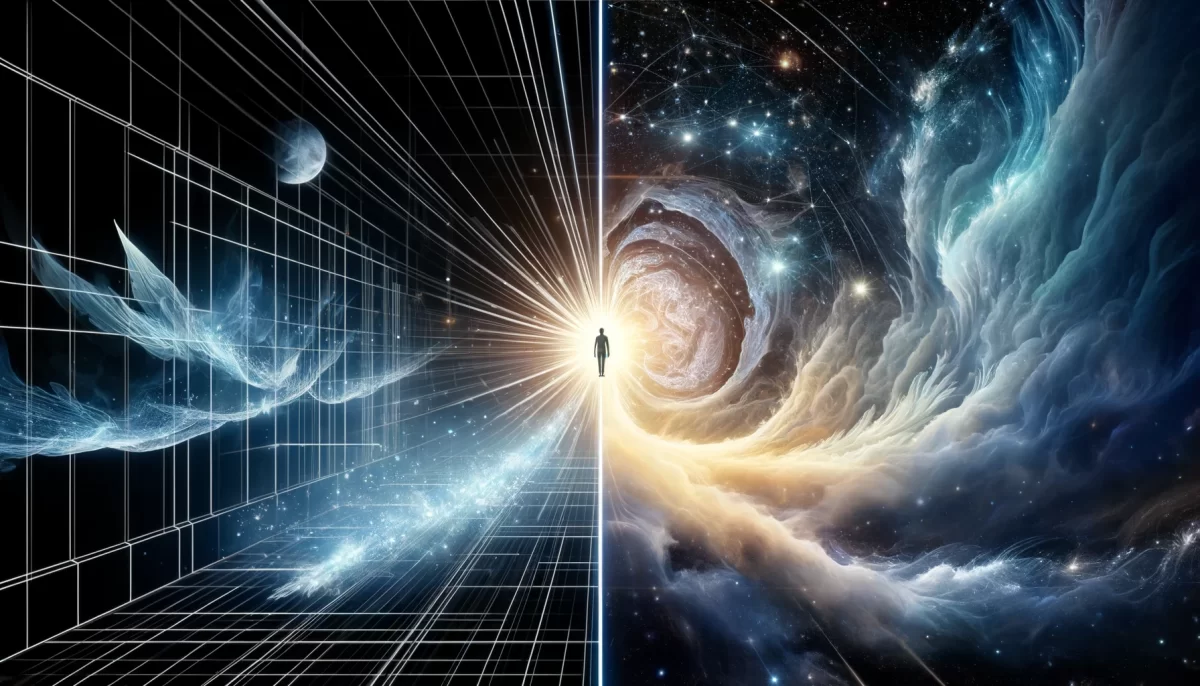


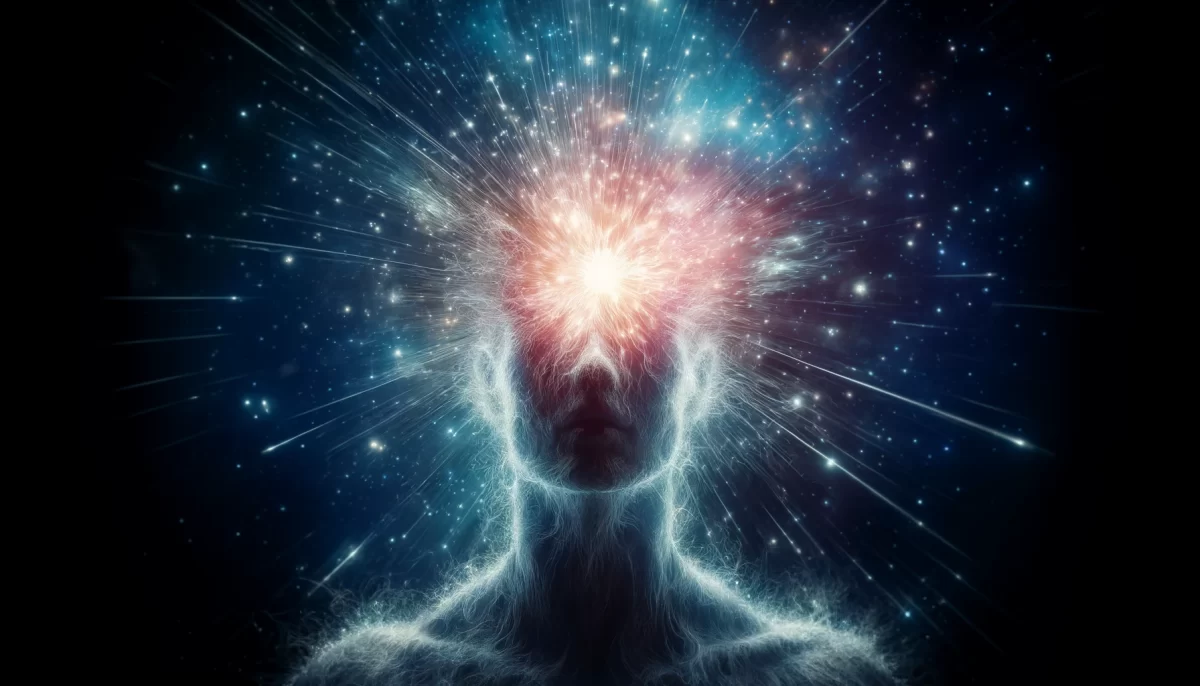
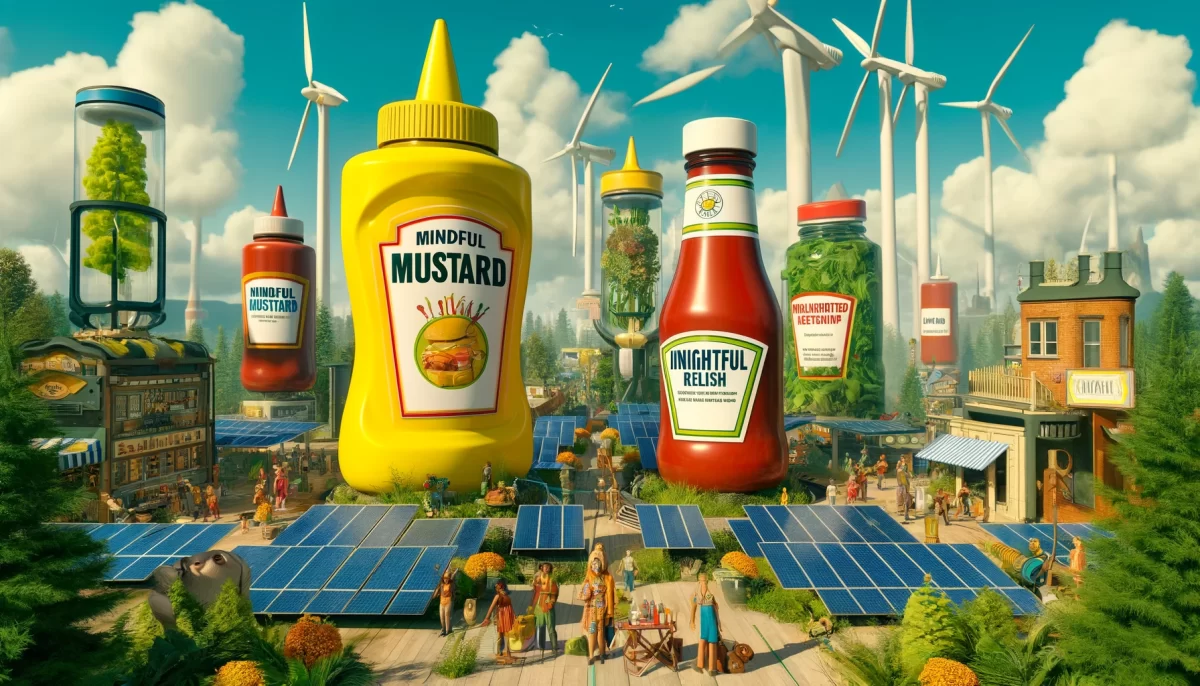



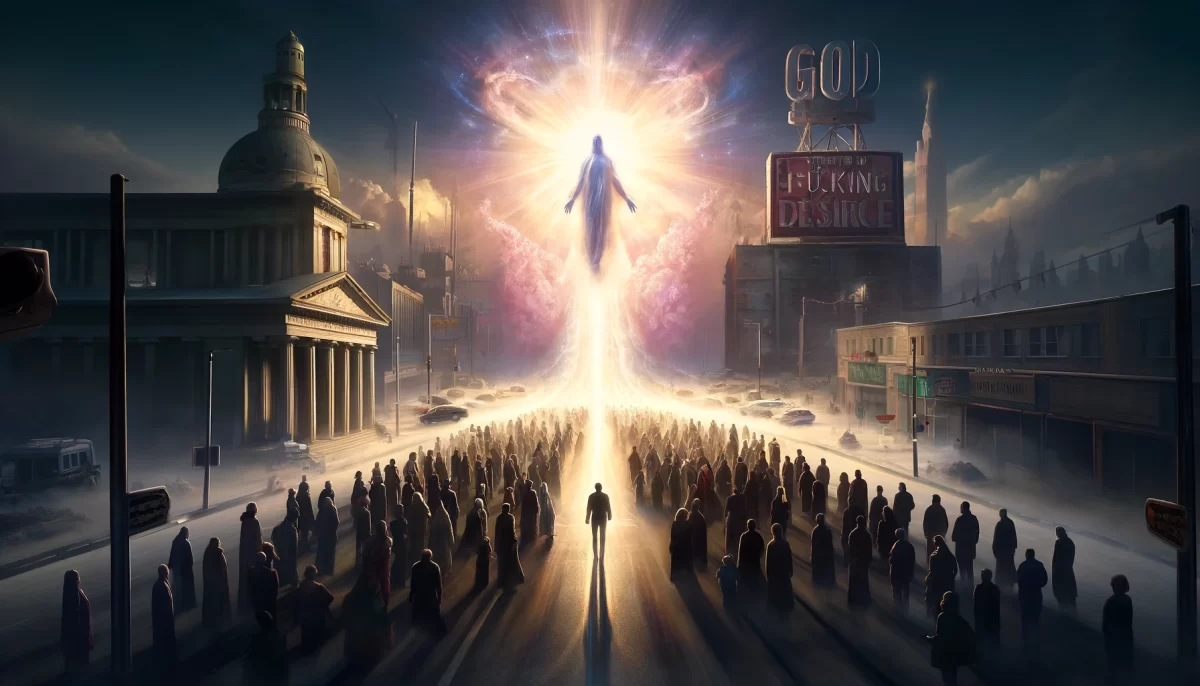
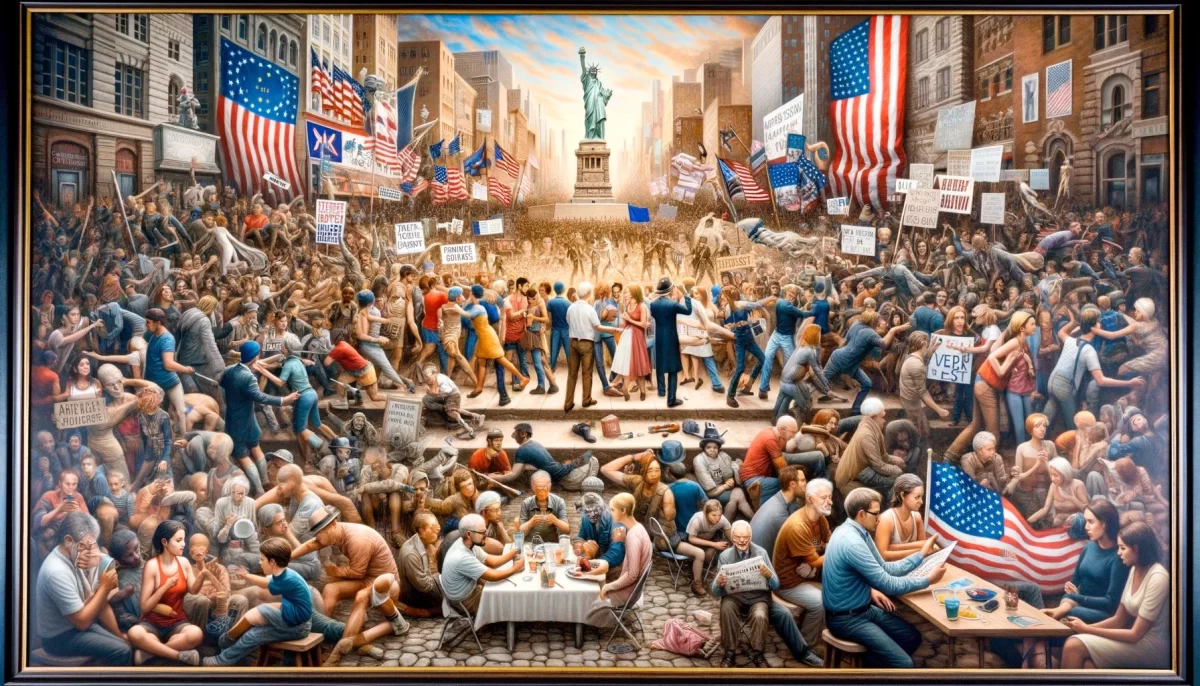
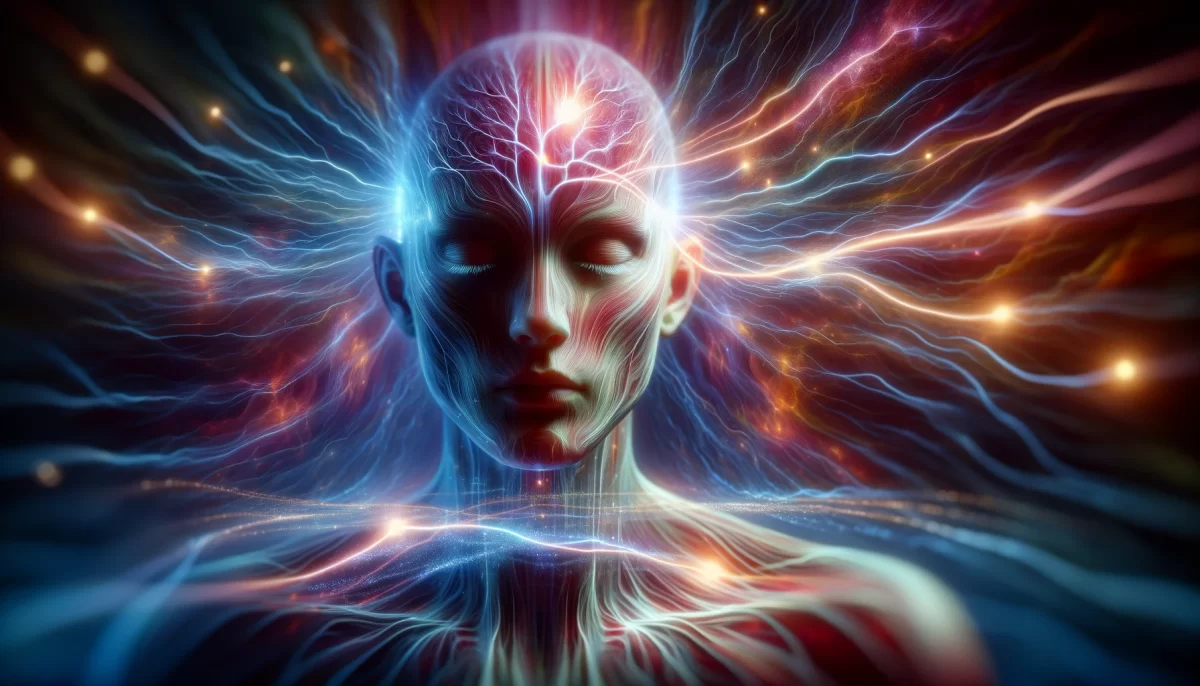


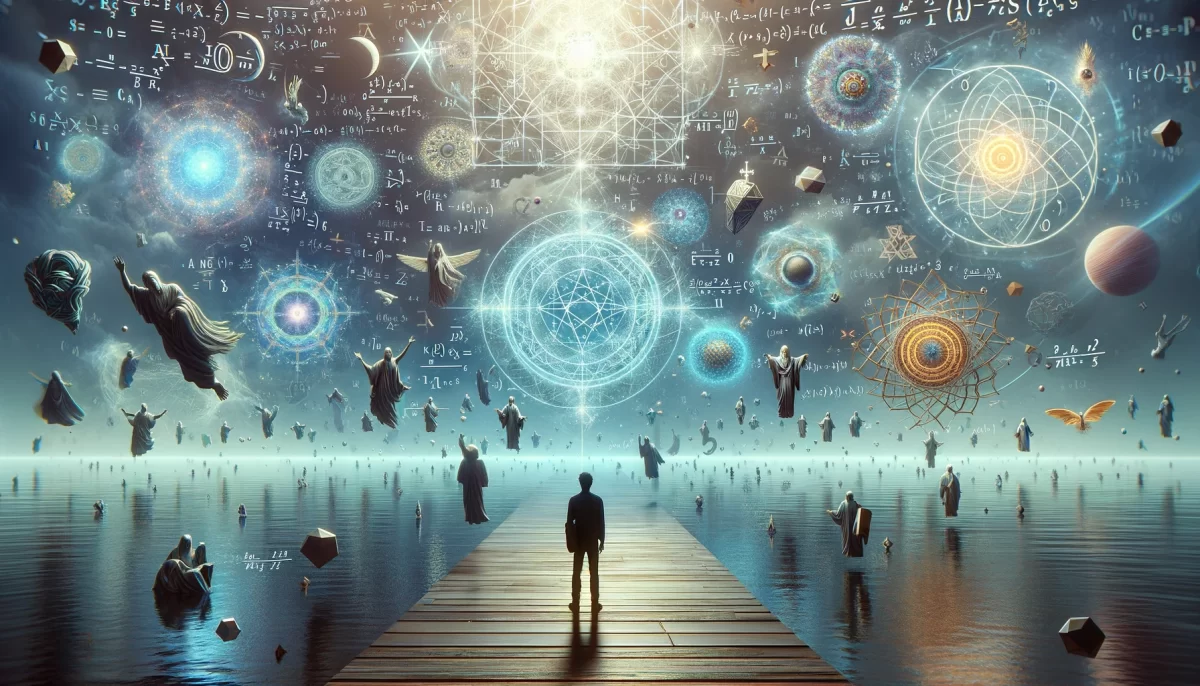
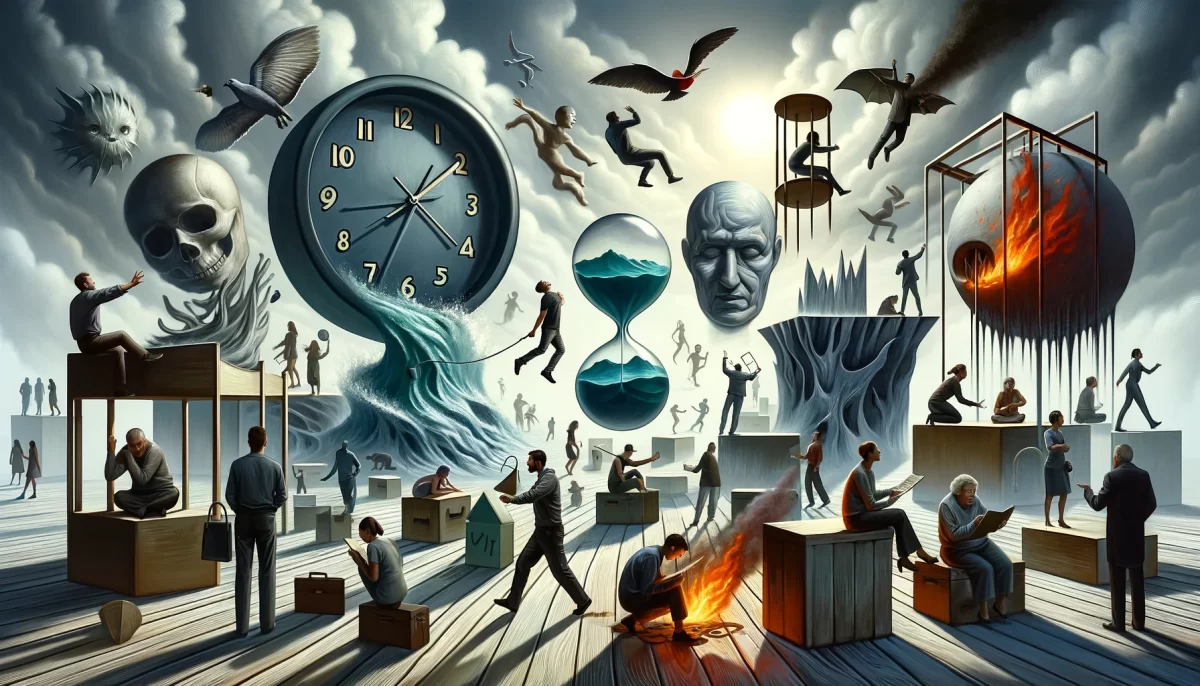
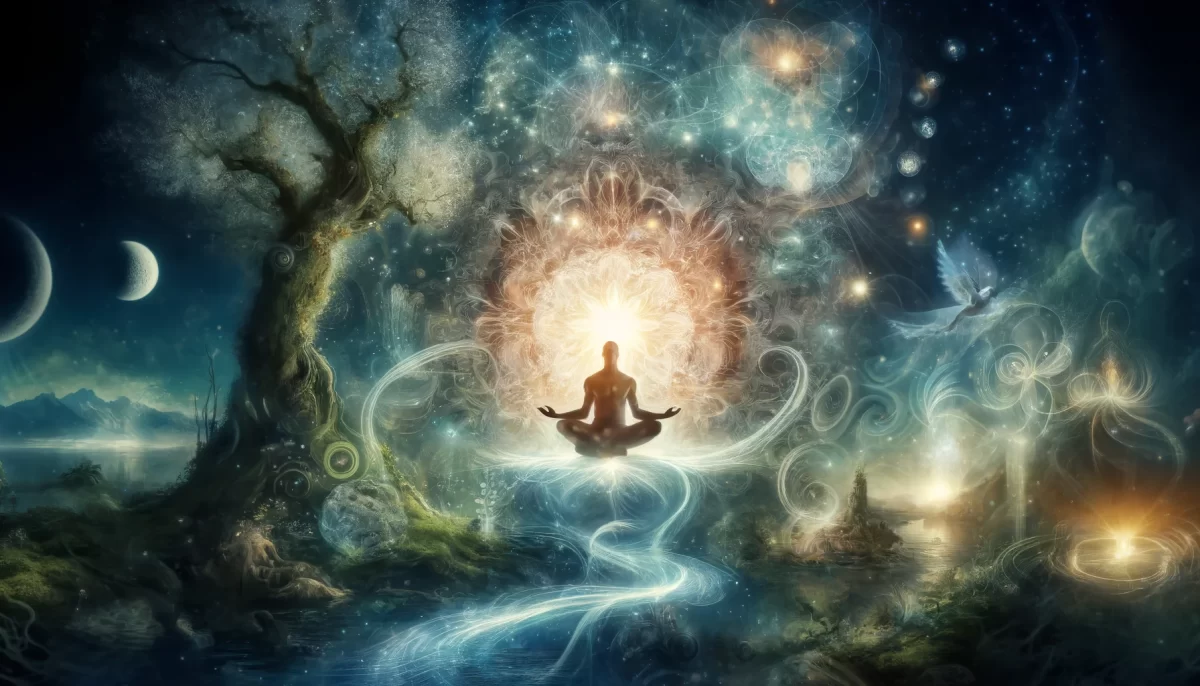
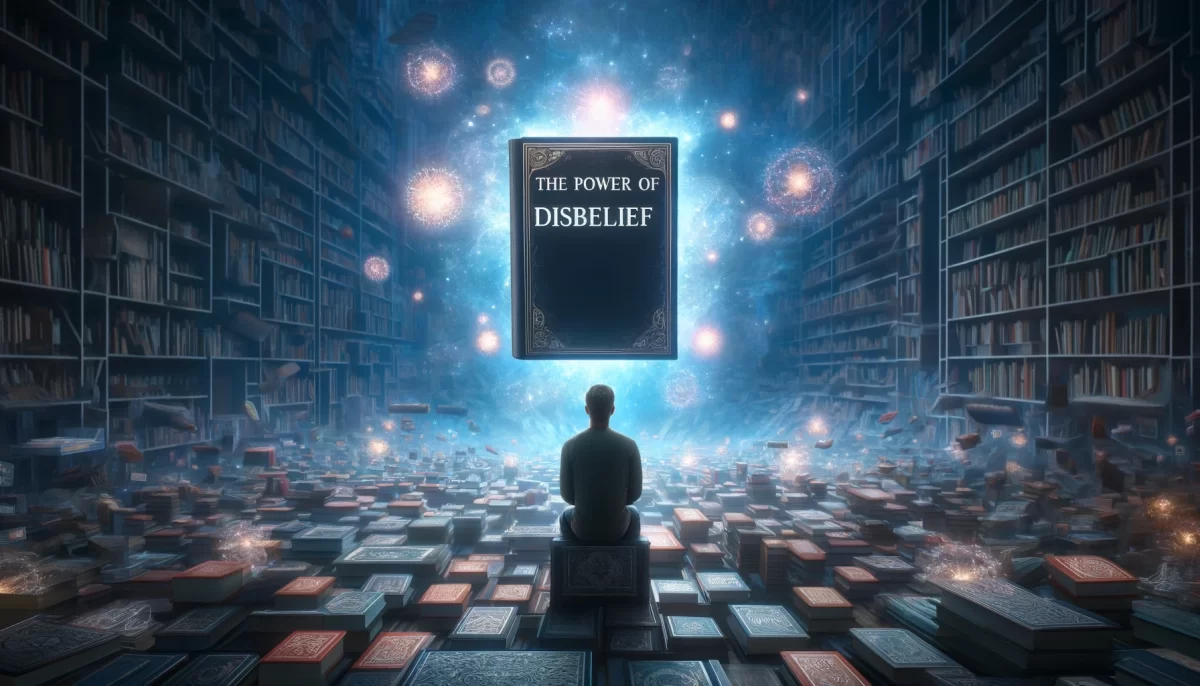

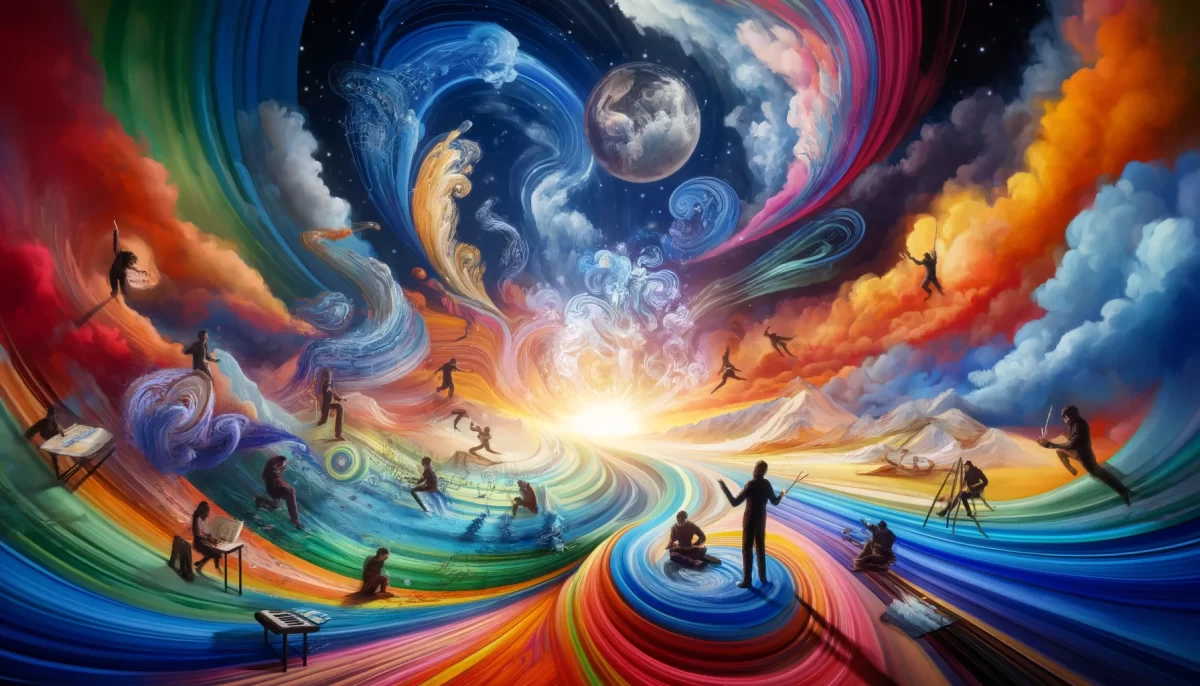
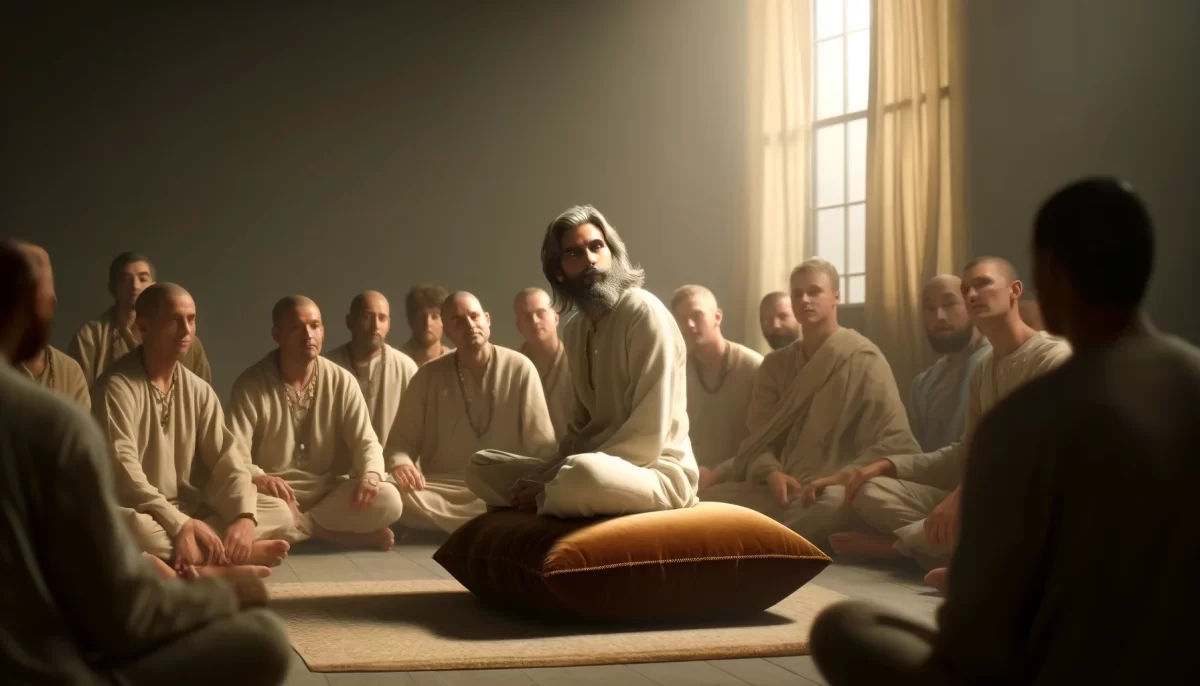
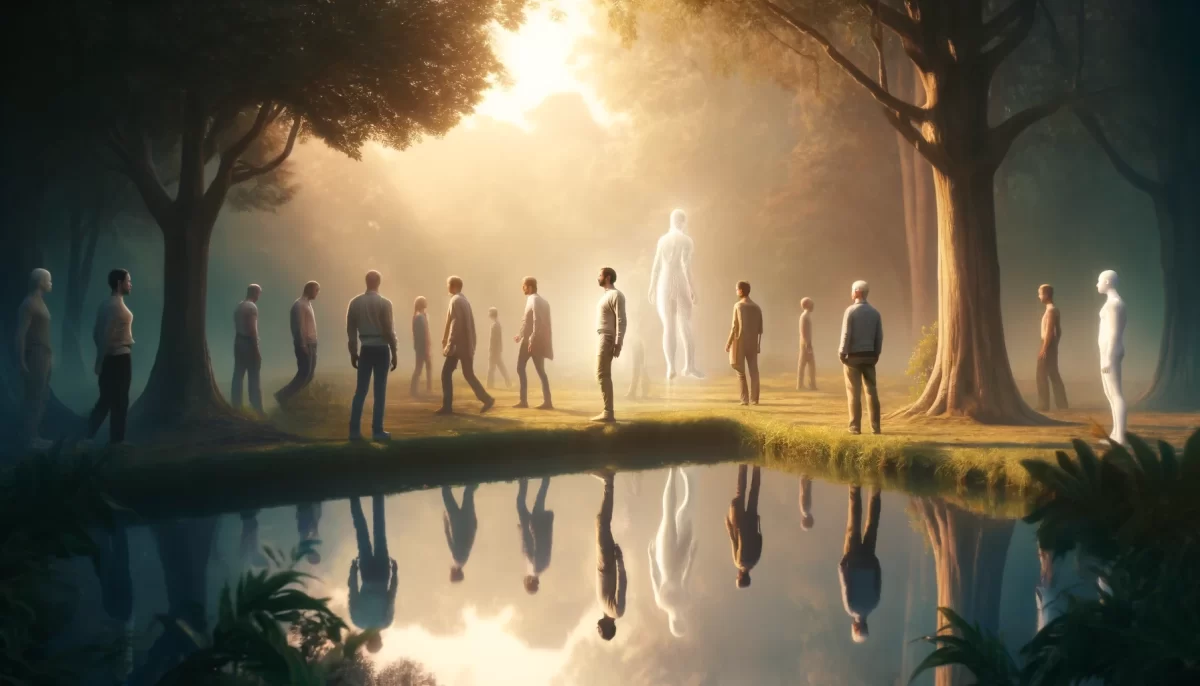


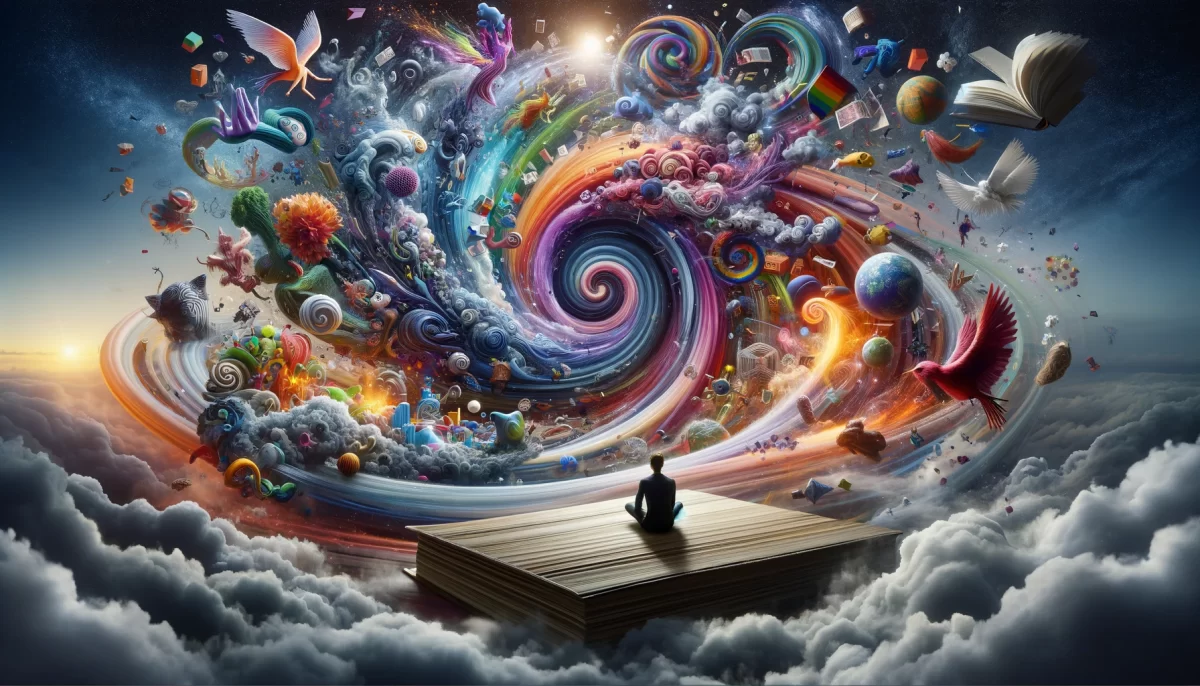
Leave a Reply